Gather ‘round, beauty junkies, because today we’re talking about the unsung hero of cosmetics: water. That’s right, H2-freaking-O. You may think, “It’s just water, why are we having this conversation?” But oh, sweet summer child, water is the backbone of your skincare. It’s the Taylor Swift of ingredients, always there, always flawless, but never quite getting enough attention (okay, so maaaaybe Taylor Swift gets plenty of attention).
Now, let’s dive into the tea (or, should I say, the water) on what it’s doing in your products and whether that’s good, bad, or ugly.
Why Is There So Much Damn Water in My Products?
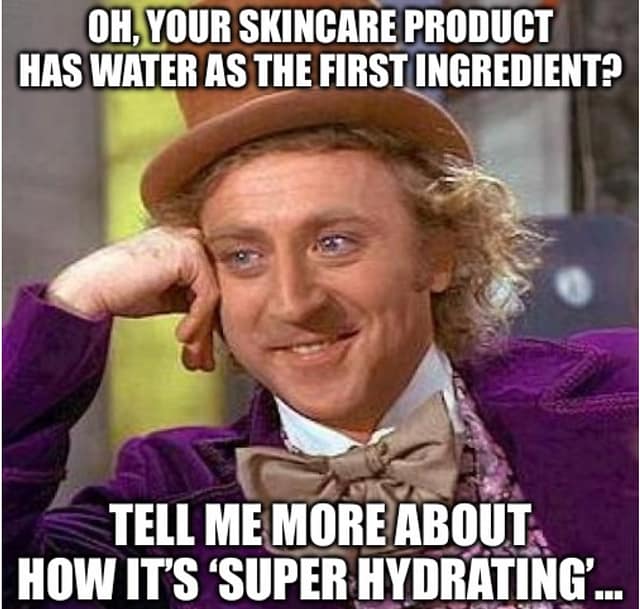
If you flip over any skincare or beauty product, chances are water (or aqua if we’re being fancy) is listed as the first ingredient. This isn’t because the beauty industry is trying to hydrate your skin directly. It’s because water is the most common solvent in cosmetics. Water helps dissolve all the oils, butters, and powders that are doing the real work. Basically, it’s the DJ mixing the beats, making sure everything stays smooth and in sync.
And no, they’re not using Evian. They use distilled or purified water that’s had all the minerals and contaminants zapped out. So, it’s clean AF, which is more than I can say about your Tinder history.
The Pros of Water in Cosmetics (aka, Why You Should Be Grateful)
1. Hydration, Hydration, Hydration:
Water-based products (think serums, creams, gels) can help replenish the water content in your skin. It’s like sending in the firefighters to a desert—your parched skin is screaming, “Yes, please.” You know that dewy glow everyone’s chasing? Water-based products are the real MVP.
2. Lightweight Formulas:
Not a fan of thick, greasy products? That’s where water swoops in like a skincare superhero. It makes the formula lighter, so it absorbs faster, feels refreshing, and doesn’t leave you looking like a glazed doughnut. Unless, of course, that’s the vibe you’re going for (no judgment).
3. Enhances Product Efficacy:
A water base can make it easier for your skin to absorb active ingredients like hyaluronic acid or niacinamide. It’s like opening the door for your skincare actives to enter and work their magic.
4. Cost-Effective:
Water’s cheap—like dirt cheap. So it’s no wonder brands love to pump it into their products. This is why a water-based moisturizer won’t cost you your firstborn, unlike those bougie oil-based creams that might have you taking out a second mortgage.

The Cons of Water in Cosmetics (aka, Don’t Get Too Comfortable)
1. It’s a Breeding Ground for Bacteria:
Water is like an open bar for microbes. Without preservatives, that jar of moisturizer would turn into a petri dish faster than you can say “breakout.” That’s why all water-based products need preservatives like parabens (gasp) or alcohols to stop the nasties from taking over. But preservatives can be irritating for some people—especially those with sensitive skin.
2. It Dilutes Potency:
Water-based products are lighter, sure, but they’re also less concentrated. This means fewer actives per dollop, which means it might take longer to see results. For those of us who want to wake up with flawless skin tomorrow (don’t lie, you know who you are), that can feel frustrating.
3. Shorter Shelf Life:
Once you crack open a water-based product, the clock’s ticking. The combination of water and preservatives will eventually break down, meaning these products usually have a shorter shelf life than oil-based ones. If you’re hoarding half-used jars like they’re rare Pokémon cards, it’s time to reevaluate your life choices.
4. Not as Effective for Long-Term Hydration:
Ironically, while water-based products feel like a glass of cool lemonade for your skin, they don’t actually lock in moisture all that well. Sure, they give an immediate boost, but without occlusive agents (like oils or butters) to trap it in, that hydration’s gonna peace out fast, leaving your skin drier than your ex’s personality.

The Verdict: Water, You Thirsty B*tch
Water’s not the villain in your skincare routine, but it’s also not the magic elixir you might think it is. It’s more like a wingman—it helps other ingredients do their job, feels light, and is affordable. But if you’re looking for hardcore hydration or high-potency ingredients, you’re gonna want to layer up with some oils, creams, or something a little more robust.
So, don’t swear off water-based products just yet. Just know what you’re getting into: instant hydration, quick absorption, and products that are probably half water. You know what they say—hydration is key, but just don’t expect water alone to fix your entire life.
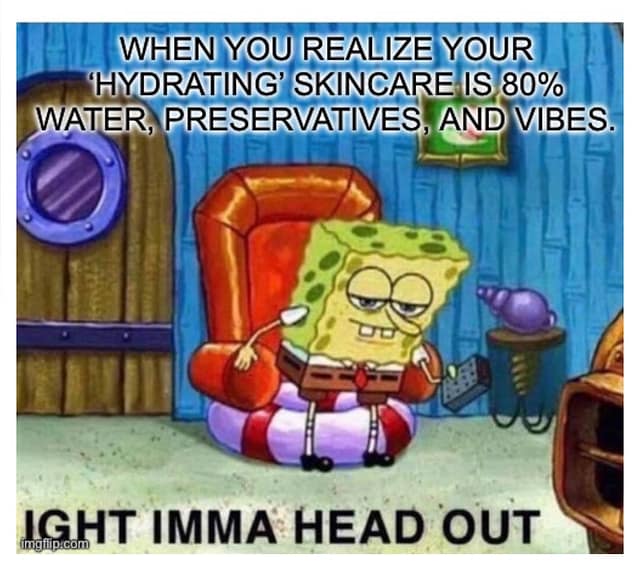
Further Reading:
Ledesma, Ana. “Water in Cosmetics: A Dive Into Water-Free Beauty” The International Natural and Organic Cosmetics Association, https://natrue.org/water-in-cosmetics-a-dive-into-water-free-beauty/#:~:text=Water%20has%20been%20referred%20to,solvents%20like%20ethanol%20or%20glycerine..
“The Truth About Water in Skincare Products.” Jurlique, 8 June 2022, https://jurlique.com/blogs/news/the-truth-about-water-in-skin-care-products?srsltid=AfmBOooCYgezHuOAV6u1VUV-fYkbUXgmzuGBOKmaLi1clWUVvpBFV9yk
Ward, Lori. “The Pros and Cons of Water As a Skincare Ingredient.” Nutritional Aesthetics Alliance, 14 Sep. 2015, https://skinwellnesspro.com/the-pros-and-cons-of-water-as-a-skincare-ingredient/
This is a rewrite of a previous post.


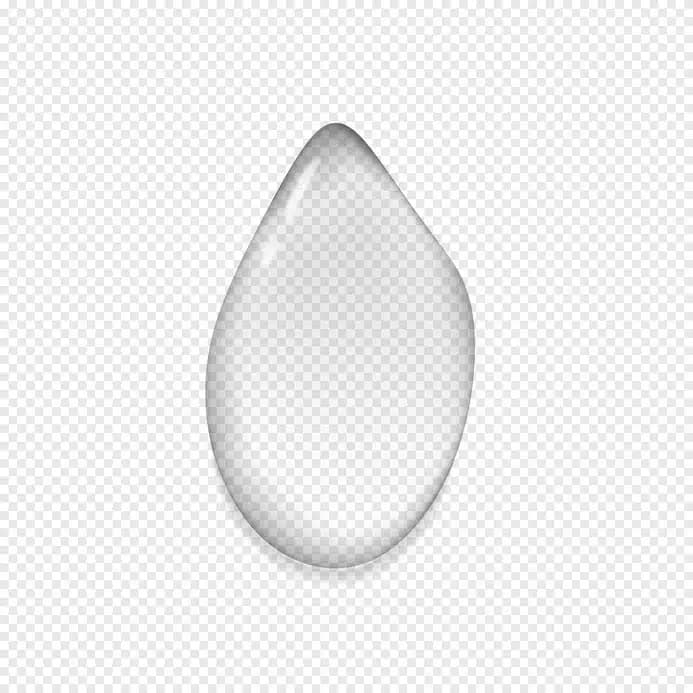

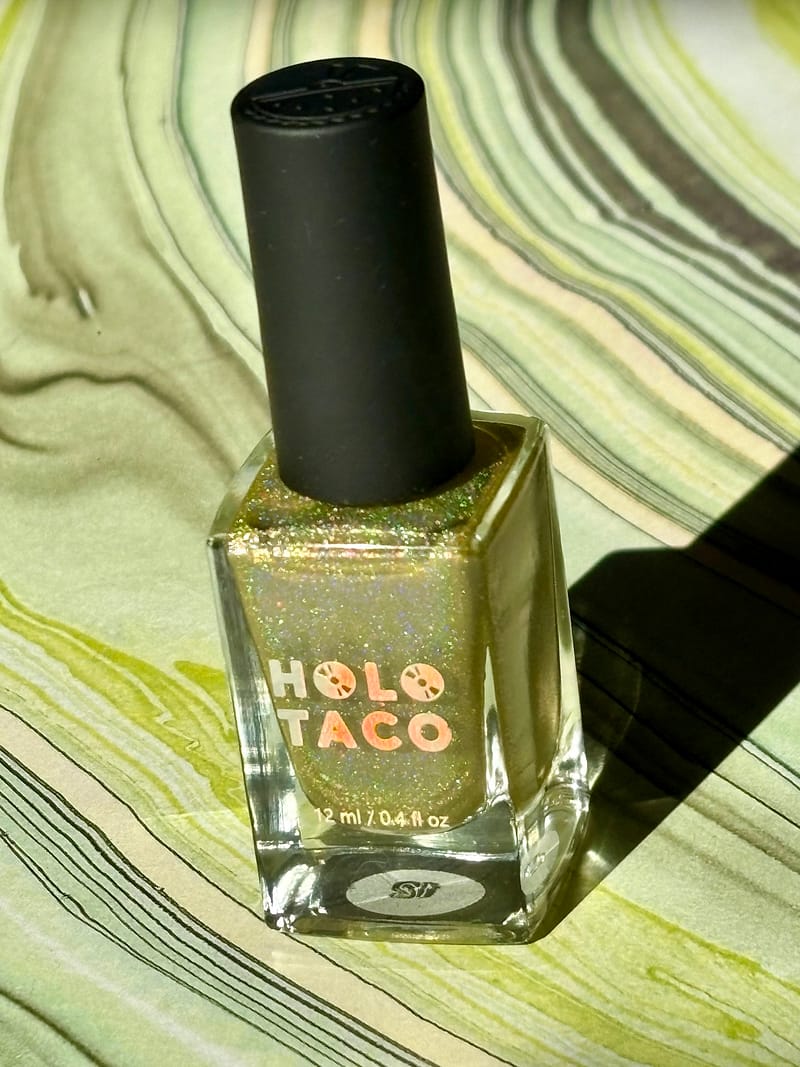

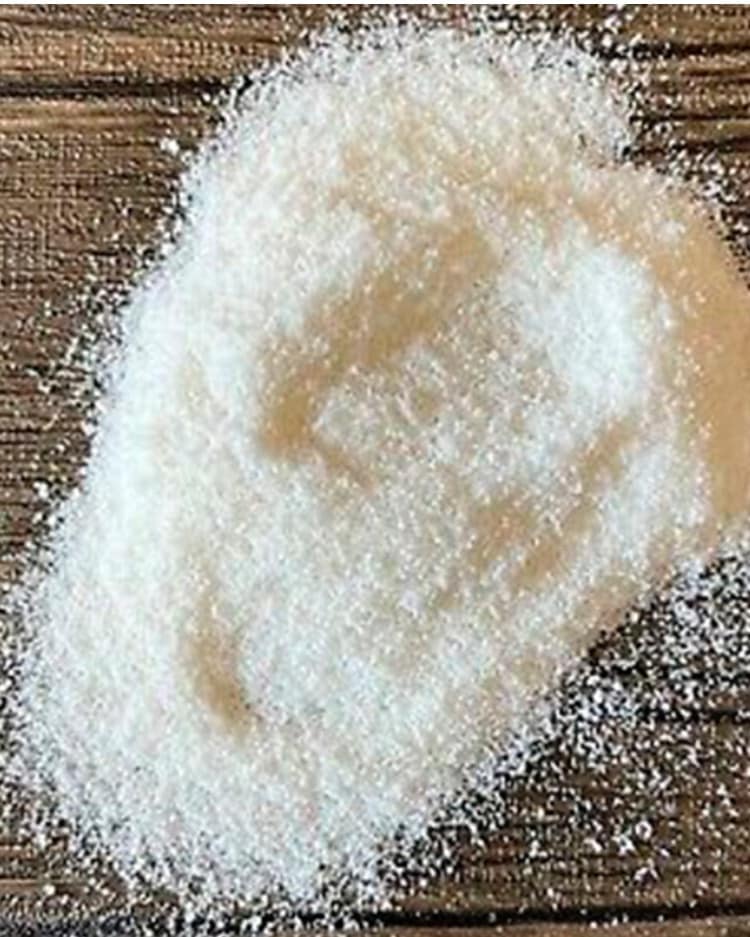
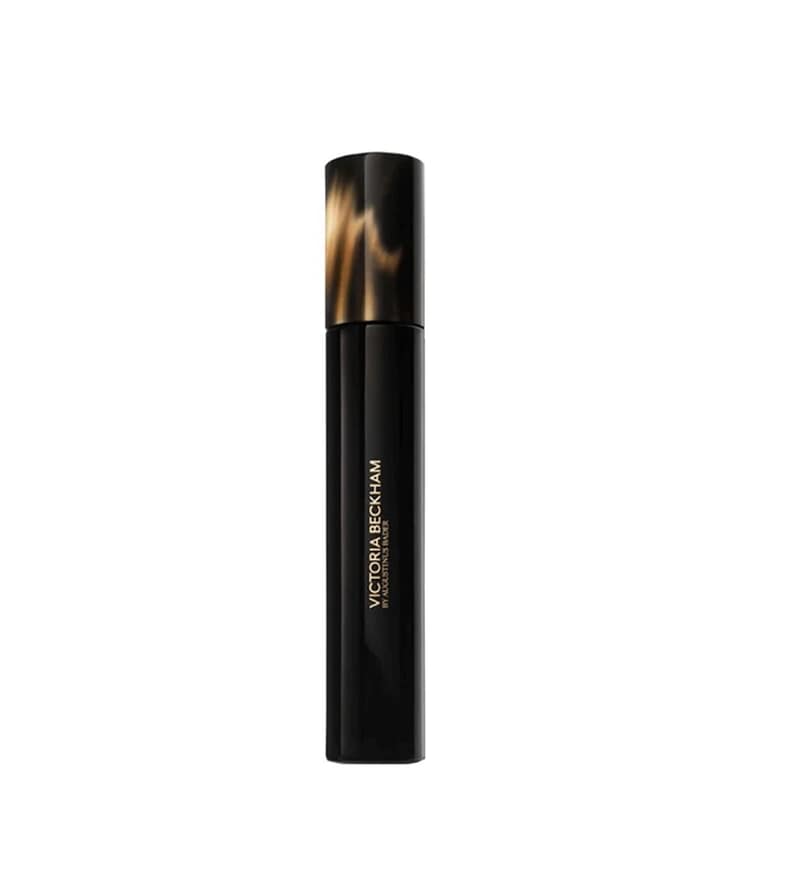
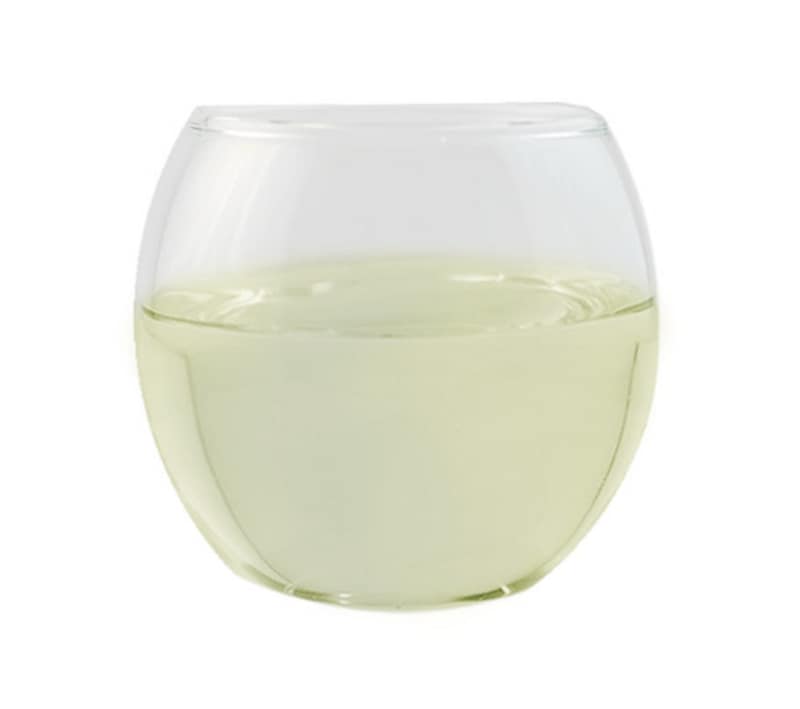

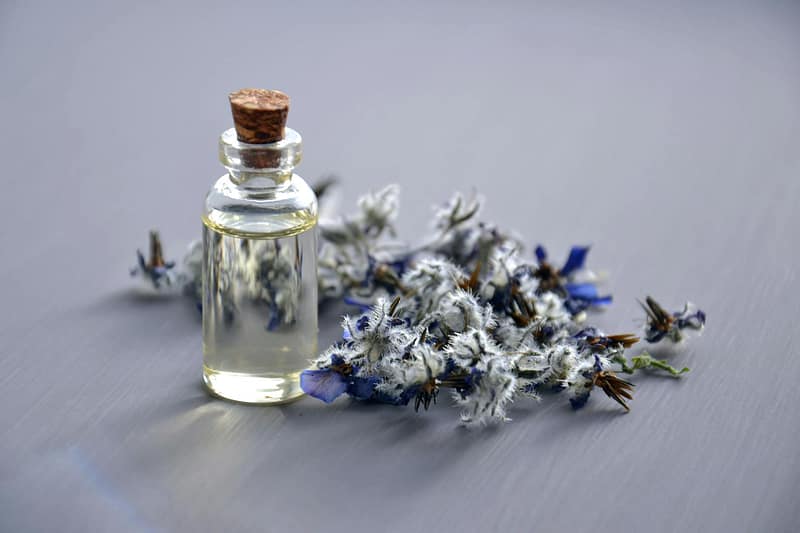
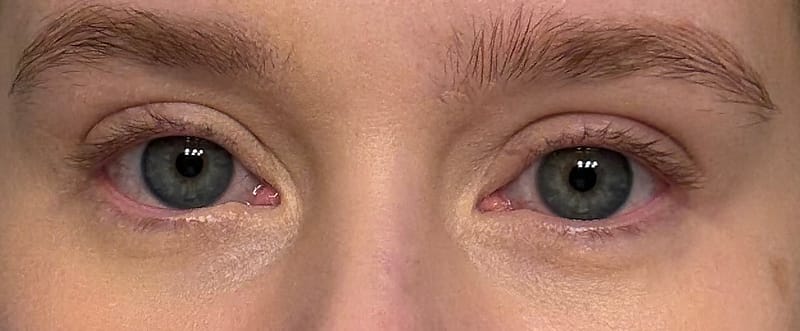
4 thoughts on “Water in Cosmetics: The Truth Behind the World’s Most Basic Ingredient”